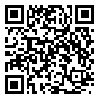Volume 7, Issue 1 (February 2020)
Avicenna J Neuro Psycho Physiology 2020, 7(1): 9-14 |
Back to browse issues page
Download citation:
BibTeX | RIS | EndNote | Medlars | ProCite | Reference Manager | RefWorks
Send citation to:



BibTeX | RIS | EndNote | Medlars | ProCite | Reference Manager | RefWorks
Send citation to:
Bayegan K, Sotodeh Asl N, Karami A, Asadzadeh Dahraei H. Comparison of the Effectiveness of Metacognitive Therapy and Behavioral Activation on Depression in Elderly with Type 2 Diabetes. Avicenna J Neuro Psycho Physiology 2020; 7 (1) :9-14
URL: http://ajnpp.umsha.ac.ir/article-1-305-en.html
URL: http://ajnpp.umsha.ac.ir/article-1-305-en.html
1- Department of Psychology, Semnan Branch, Islamic Azad University, Semnan, Iran
2- Department of Clinical Psychology, Semnan University of Medical Sciences, Semnan, Iran , Sotodeh1@yahoo.com
3- Department of Psychology, School of Psychology and Educational Sciences, Allameh Tabatabai University, Tehran, Iran
2- Department of Clinical Psychology, Semnan University of Medical Sciences, Semnan, Iran , Sotodeh1@yahoo.com
3- Department of Psychology, School of Psychology and Educational Sciences, Allameh Tabatabai University, Tehran, Iran
Abstract: (1724 Views)
Background and Aims: Generalized anxiety and depression are prevalent in patients with type 2 diabetes. Type 2 diabetes is one of the most common chronic diseases leading to many complications. This study aimed to compare the effectiveness of metacognitive therapy and behavioral activation on depression in the elderly with type 2 diabetes.
Materials and Methods: This quasi-experimental study was conducted based on a pretest-posttest design using a follow-up and control group. The study population consisted of elderly with type 2 diabetes who referred to five endocrine and metabolism clinics in region 11 of Tehran, Iran, during 2017. A total of 45 males and females were selected by purposive sampling method based on the inclusion criteria. Then they were assigned randomly to one control and two case groups. The Beck Depression Inventory (Second Edition) was utilized to measure the depression scale. In total, eight 90-min group intervention sessions were held weekly. The data were analyzed in SPSS software (version 25) through analysis of covariance and repeated measures ANOVA.
Results: The results showed that metacognitive therapy (F=15.07, P<0.001) and behavioral activation (F=7.09, P<0.008) were significantly effective on depression in the elderly with type 2 diabetes, and there was a significant difference between the experimental and control groups in this regard (P<0.001).
Conclusions: This study was conducted to compare the effectiveness of metacognitive therapy and behavioral activation on depression in the elderly with type 2 diabetes. The results showed that metacognitive therapy and behavioral activation were significantly effective on depression in this population with type 2 diabetes. Moreover, behavioral activation was more effective than metacognitive therapy on depression reduction.
Materials and Methods: This quasi-experimental study was conducted based on a pretest-posttest design using a follow-up and control group. The study population consisted of elderly with type 2 diabetes who referred to five endocrine and metabolism clinics in region 11 of Tehran, Iran, during 2017. A total of 45 males and females were selected by purposive sampling method based on the inclusion criteria. Then they were assigned randomly to one control and two case groups. The Beck Depression Inventory (Second Edition) was utilized to measure the depression scale. In total, eight 90-min group intervention sessions were held weekly. The data were analyzed in SPSS software (version 25) through analysis of covariance and repeated measures ANOVA.
Results: The results showed that metacognitive therapy (F=15.07, P<0.001) and behavioral activation (F=7.09, P<0.008) were significantly effective on depression in the elderly with type 2 diabetes, and there was a significant difference between the experimental and control groups in this regard (P<0.001).
Conclusions: This study was conducted to compare the effectiveness of metacognitive therapy and behavioral activation on depression in the elderly with type 2 diabetes. The results showed that metacognitive therapy and behavioral activation were significantly effective on depression in this population with type 2 diabetes. Moreover, behavioral activation was more effective than metacognitive therapy on depression reduction.
Article Type: Research Article |
Subject:
Clinical Psychology
Received: 2020/08/11 | Accepted: 2020/08/20 | Published: 2020/08/20
Received: 2020/08/11 | Accepted: 2020/08/20 | Published: 2020/08/20
Send email to the article author
| Rights and permissions | |
 |
This work is licensed under a Creative Commons Attribution-NonCommercial 4.0 International License. |






